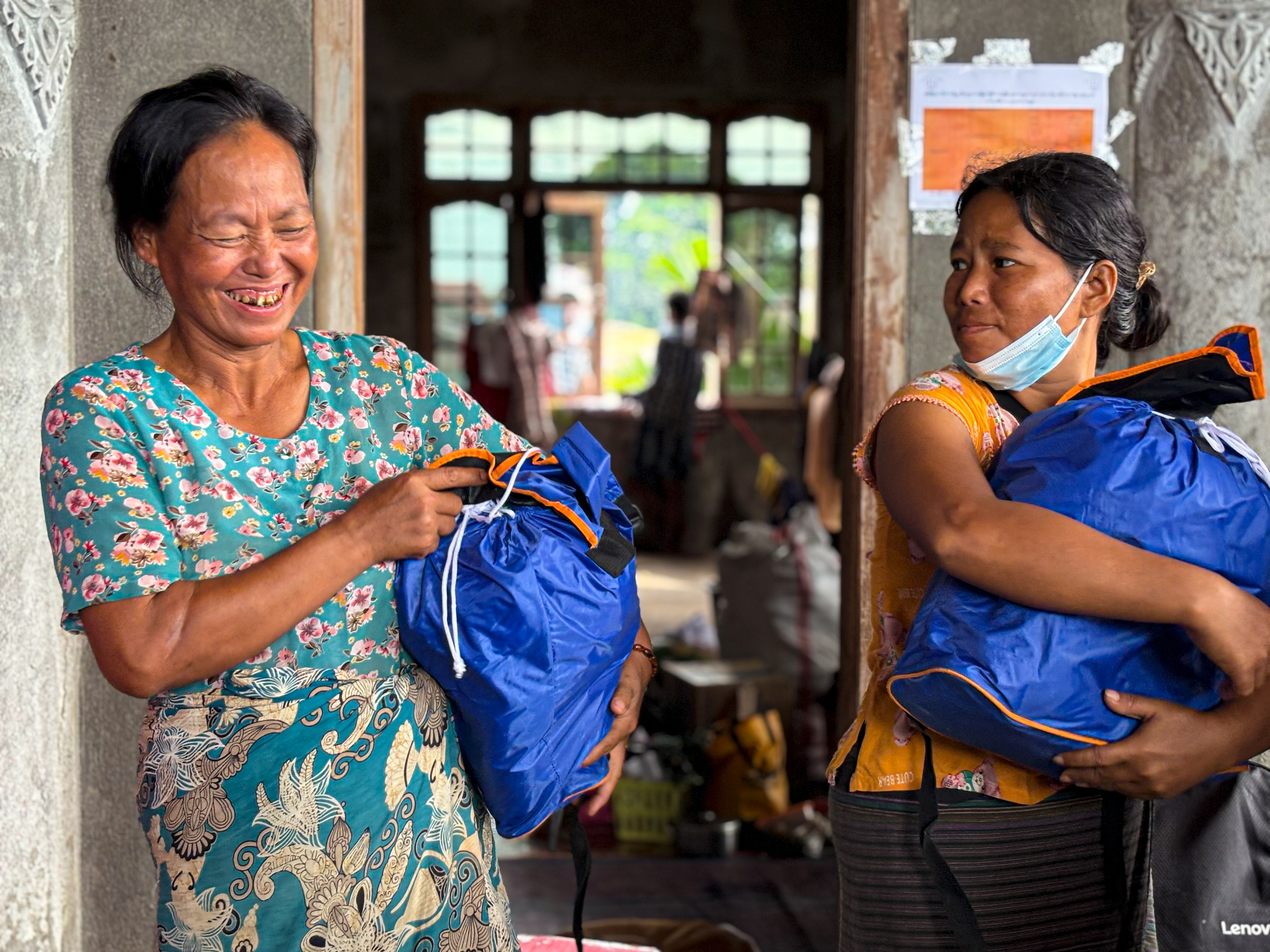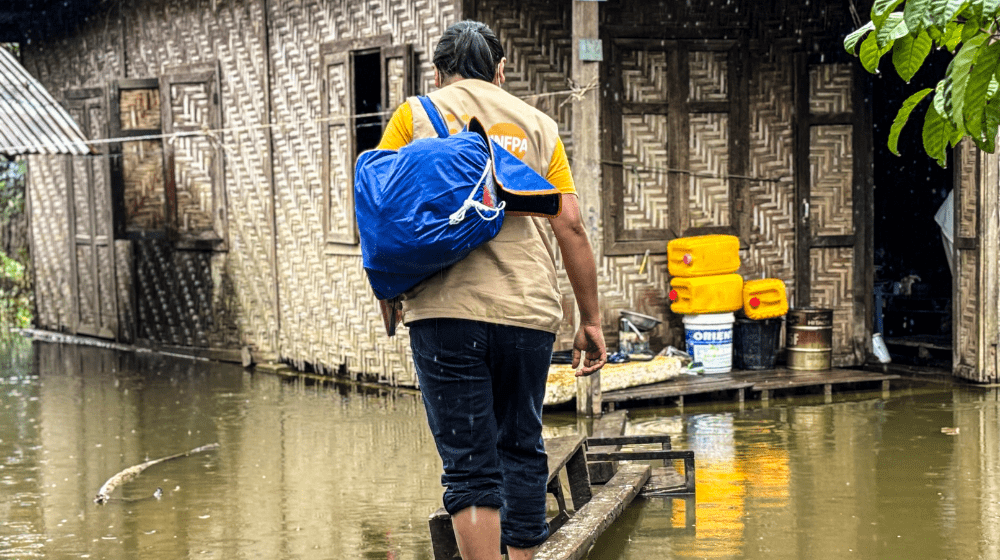"It happened so quickly. When I came back home from work, my home was already submerged. The water level was increasing inch by inch. I could bring nothing from my home. My child and I were sick due to the freezing water. Our lives are already difficult due to the armed conflict. I felt desperate. I need help. Not later, but now," Lu Ja, a woman from the flood-affected community, said.
In the wake of flash floods in Kachin state, the people in the community were confronted with loss and displacement. Homes and streets were submerged, and communications & transportation were interrupted.
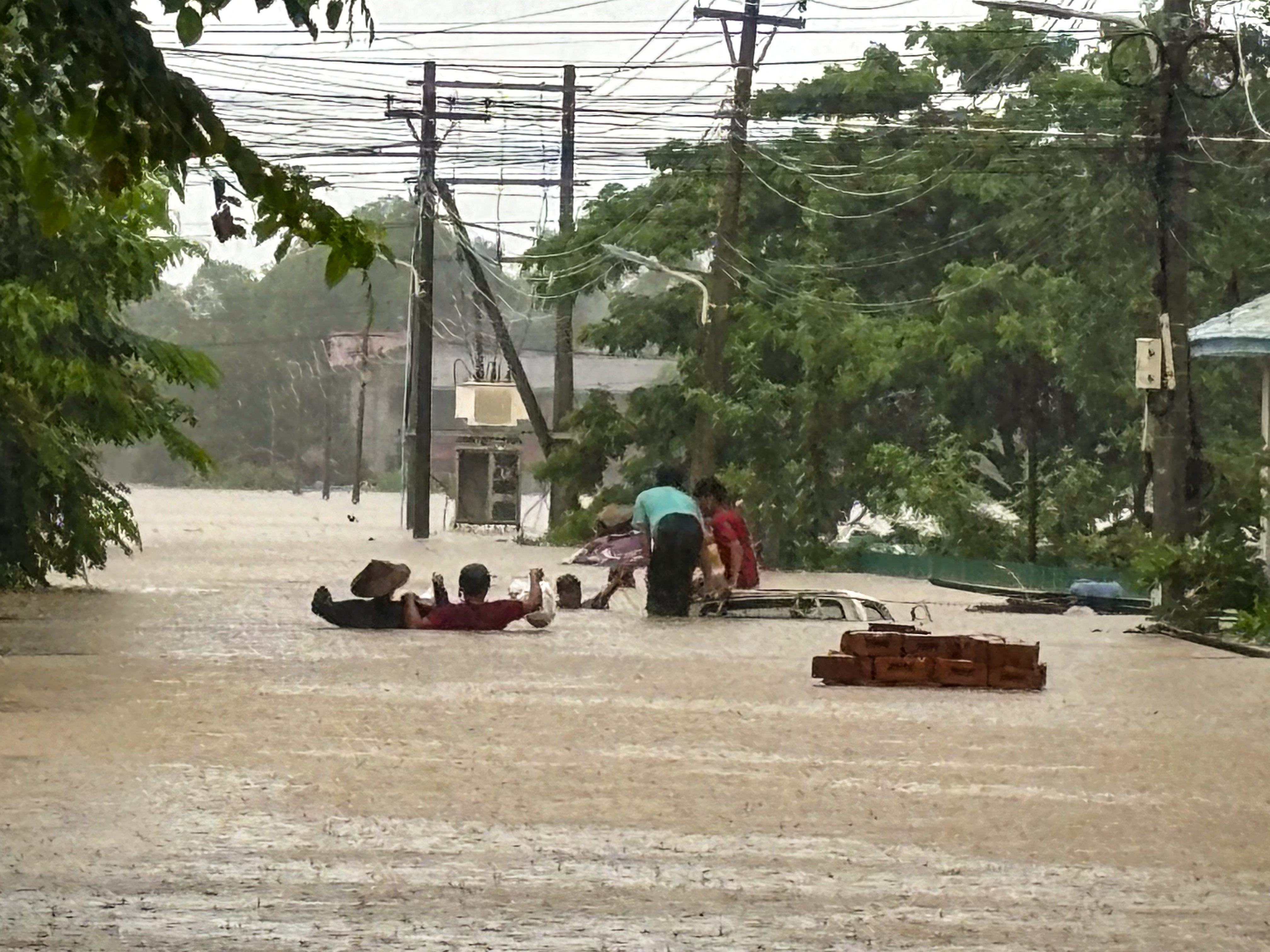
The floods, caused by heavy rains in northern Kachin, led to the overflowing of the Irrawaddy River, resulting in a flash flood that caused extensive damage to several townships, including Myitkyina and Waing Maw. According to the UN’s Rapid Needs Assessment (RNA), more than 29,000 people in both townships were affected, including 300 pregnant and lactating women. Many people, including women and children, became ill due to exposure to the cold waters, and families were forced to leave their homes with only the clothes on their backs in search of proper shelter, food and health services.
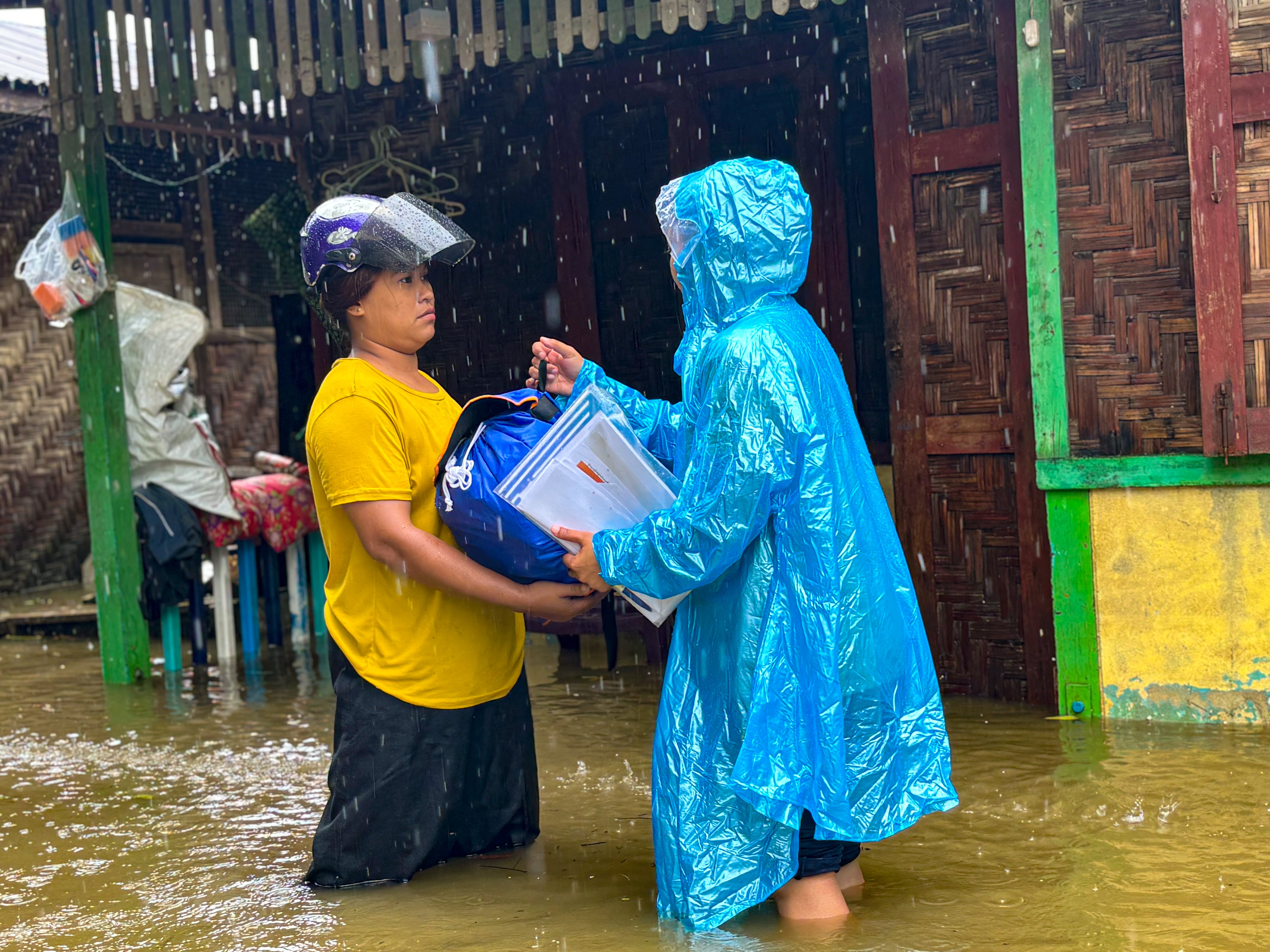
In this emergency situation, UNFPA is working closely with local partners to provide essential assistance and restore the dignity of those affected. Despite the many communications challenges, UNFPA field teams immediately approached its partners to assess and enhance their safety and operational capacity and to plan the emergency response. In Myitkyina, one of the areas most affected by the flash floods, UNFPA, in partnership with the Myanmar Medical Association (MMA) and other partner organisations, provided emergency support to 322 individuals, including women and girls, within 72 hours of the flooding. This rapid response involved setting up mobile clinics in affected areas to provide primary health care, antenatal care, mental health and psychosocial support (MHPSS), as well as distributing Dignity Kits and Clean Delivery Kits for women.
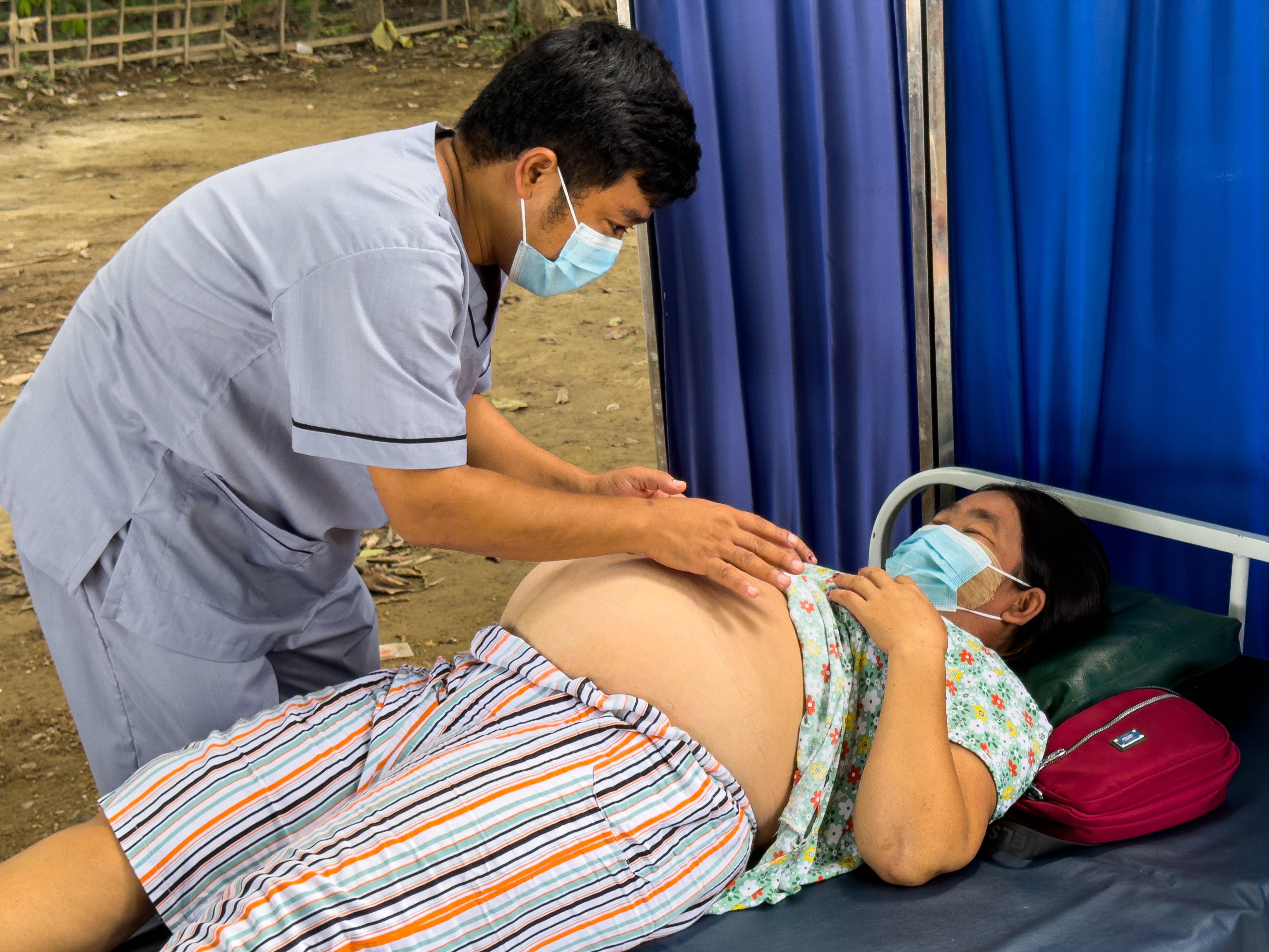
Aye Aye Thein, a pregnant woman whose home was completely submerged, received immediate medical assistance from one of the mobile health teams and was swiftly referred to a hospital for safe delivery. Holding her newborn baby close, she said, "I have no idea what would have happened if the mobile health team hadn't been there. With my pregnancy due for delivery soon, I felt helpless at the evacuation site. However, the response team led by UNFPA came and helped me immediately, referring me to the hospital for delivery. They saved our lives; my life and my baby's life. Despite losing our personal belongings to the flood, the Dignity Kit they provided gave me some of the essentials to care for myself and my child. I am really grateful for the support.”
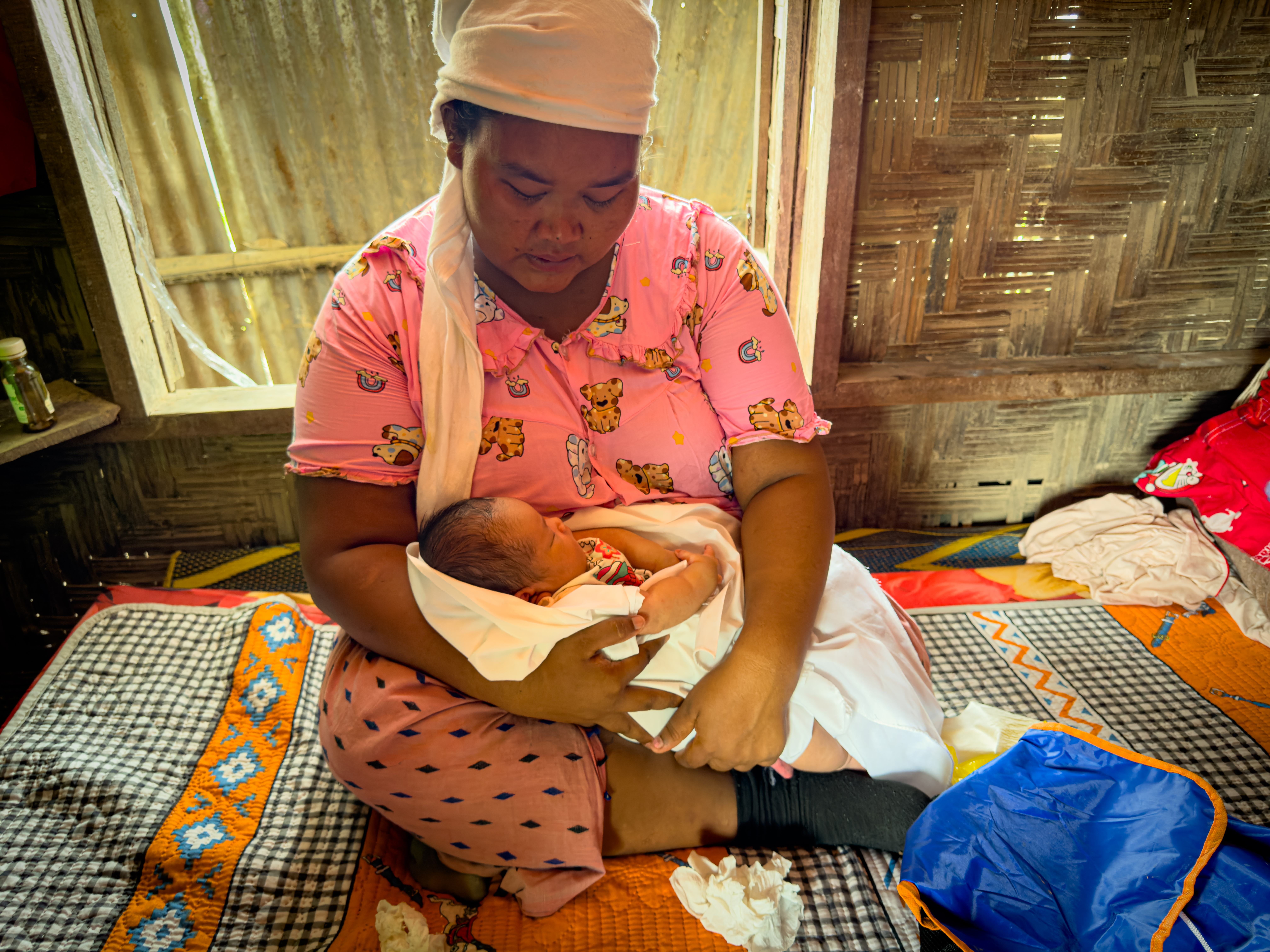
Shing Ceing, a staff member of the UNFPA implementing partners in Kachin, said, “Every single support and service we provide is needed by the affected community. I still remember one of the women at the IDP camp. She delivered her baby two weeks ahead of the flood. When we met her at the evacuation site, she was helpless with her baby. Her husband had just passed away while he was helping others during the flood. Besides providing medical care and dignity kits, we also gave her mental health and psychosocial support, which was very critical in such a traumatic experience.”
A touching moment took place when a pregnant woman at an evacuation site, where she had sought help, expressed her gratitude. She was wearing a longyi provided in the Dignity Kit and said, "I had nothing dry to wear, but thanks to this kit, I got what I needed for my hygiene and can now return home with the basics to look after myself."
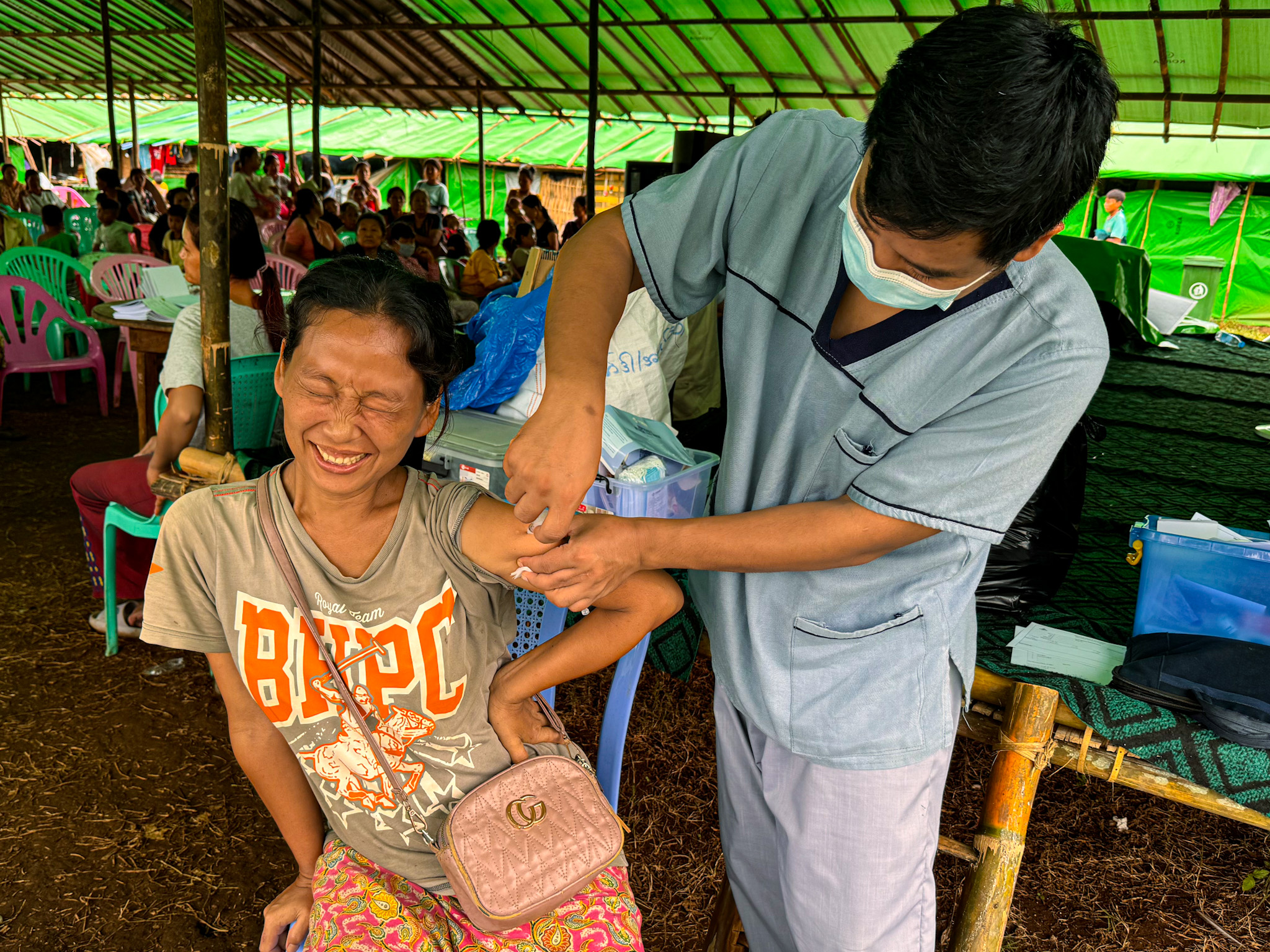
The flood disrupted community support systems and access to essential health and protection services for women and girls, including antenatal care and gender-based violence services. Among the flood-affected population, women and girls in the internally displaced (IDP) camps suffered the most. The situation in these IDP camps is particularly dire; they are not only grappling with the aftermath of the floods but also ongoing conflict. Kham Mo, a mother of three, shared her relief, "The floods took everything. This Dignity Kit helps me feel human again. It has what I need to take care of myself and my daughters."
"I am in my 9th month of pregnancy. When the flood hit our camp, I felt desperate. I was frightened as I crossed the water to reach higher ground. Many people at the camp, including women and children, were sick and needed immediate healthcare. Even in normal times, it's difficult for us to access healthcare near the camp. Now, I'm so happy that the mobile health team delivered health care and provided cash assistance for referral to the hospital for delivery. They give me hope and strength.”
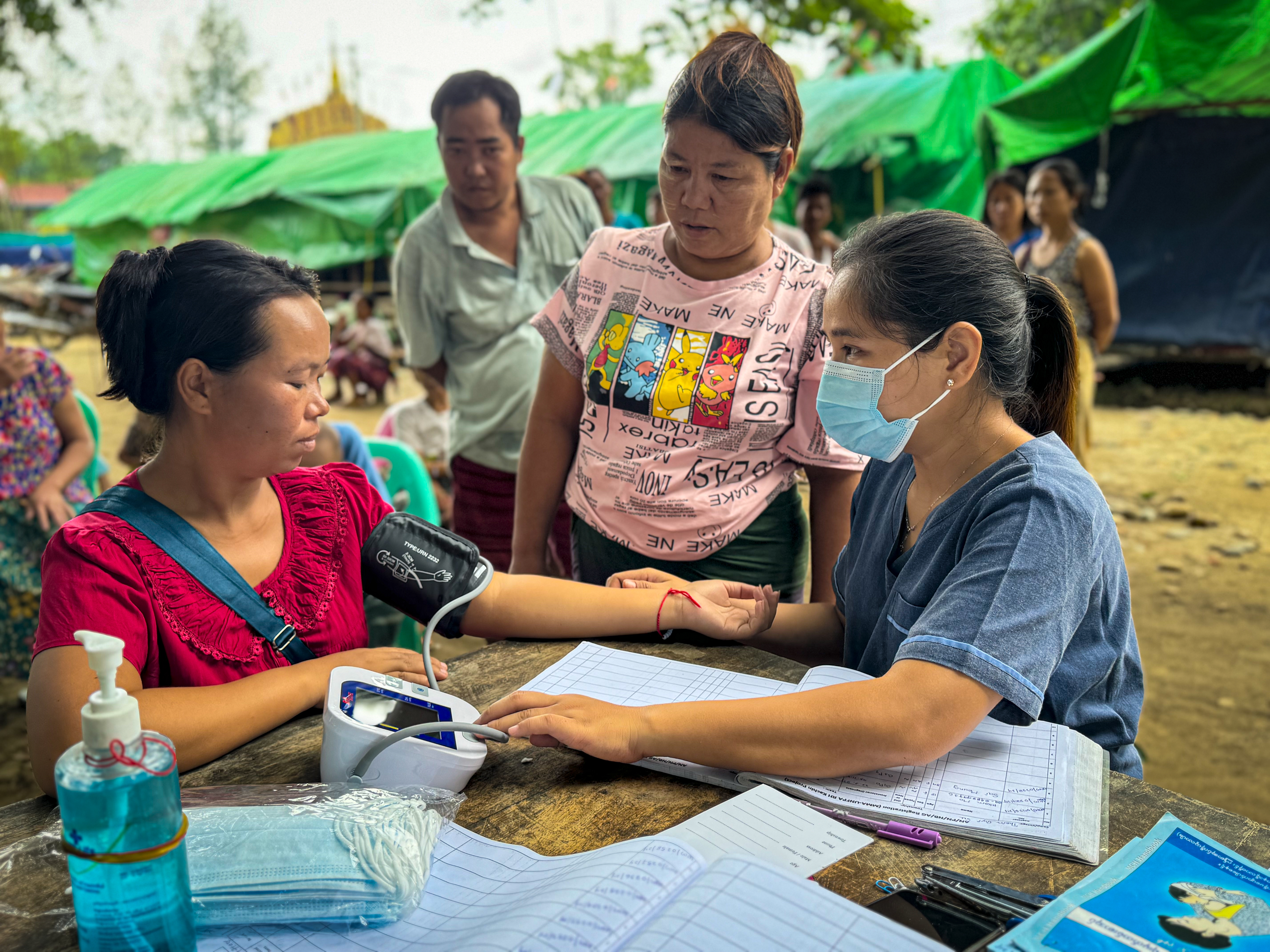
Among the affected population by the flood are humanitarian actors working on the ground. Their homes and offices were also submerged, and their families were displaced. Despite their losses and confusion due to the flood, they helped others and prioritized the needs of their communities. As one staff member from a UNFPA partner organizations said, “Helping others in this time of need gave me strength and purpose.”
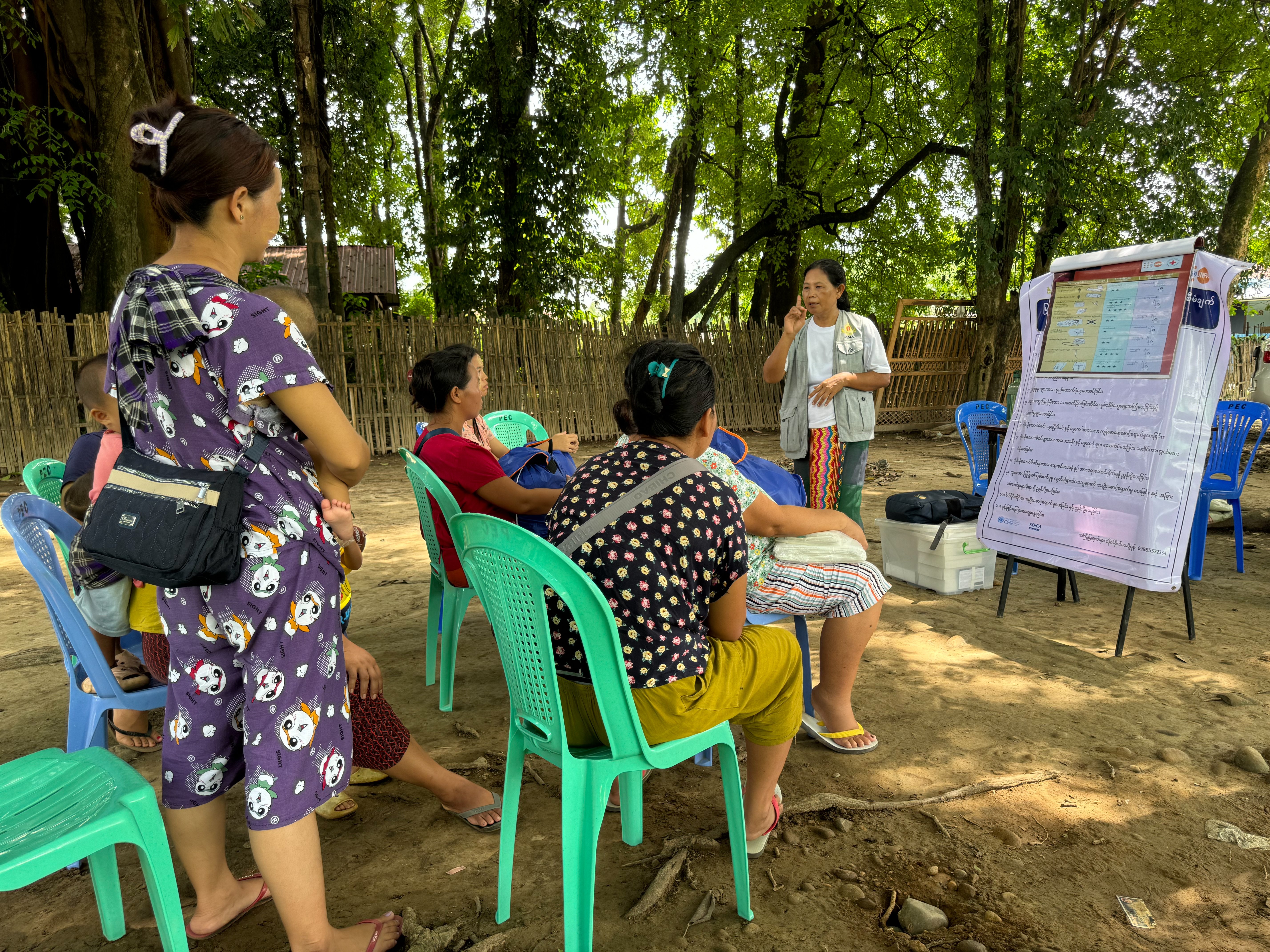
Due to the impact of the flood, there is an urgent need for healthcare in affected communities. Common issues include skin infections, fever, diarrhoea, and mental health-related problems. Pregnant women require heightened antenatal care. As a medical doctor from one of the UNFPA’s partner organizations in Kachin put it, while he was grappling with the massive damage to his own home “The flood hit us swiftly when people were not ready. Affected people in the community were waiting for healthcare, including those who needed urgent assistance. Seeing the gratitude in the eyes of the women and girls we help makes all the hardships worth it. We are all in this together, and that keeps me going.”
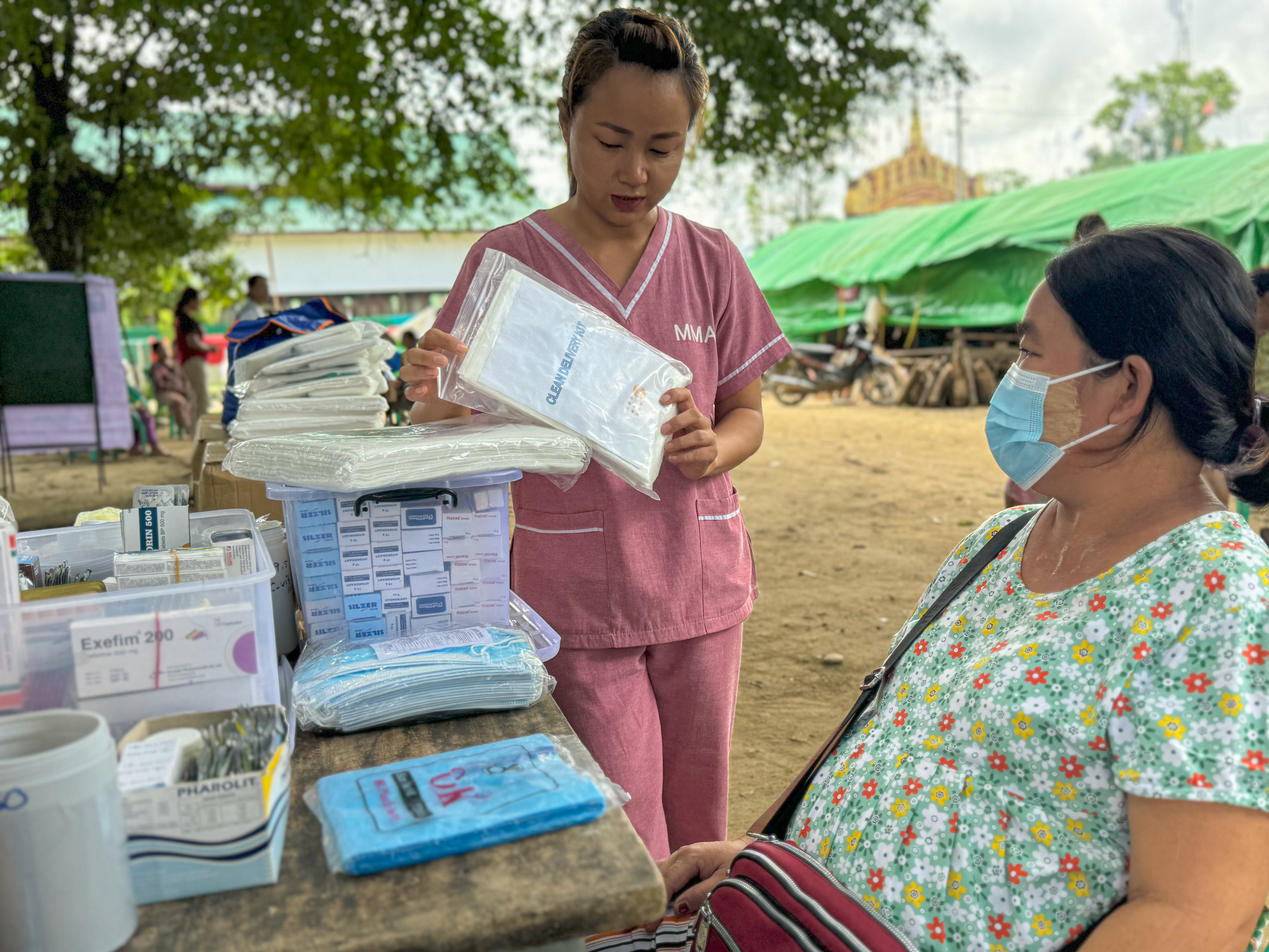
UNFPA distributed some dignity kits to staff from partner organisations and their families affected by the floods, ensuring that those who were helping others were also cared for.
The critical need to ensure lifesaving support for vulnerable populations, particularly women, girls, and pregnant women, during emergencies cannot be overstated. Providing such support is vital to prevent further health complications and to save the life and the dignity of those affected. The collaboration between UNFPA and partners in Kachin strengthened the effectiveness of the coordinated humanitarian response in delivering timely and efficient assistance to the affected areas.
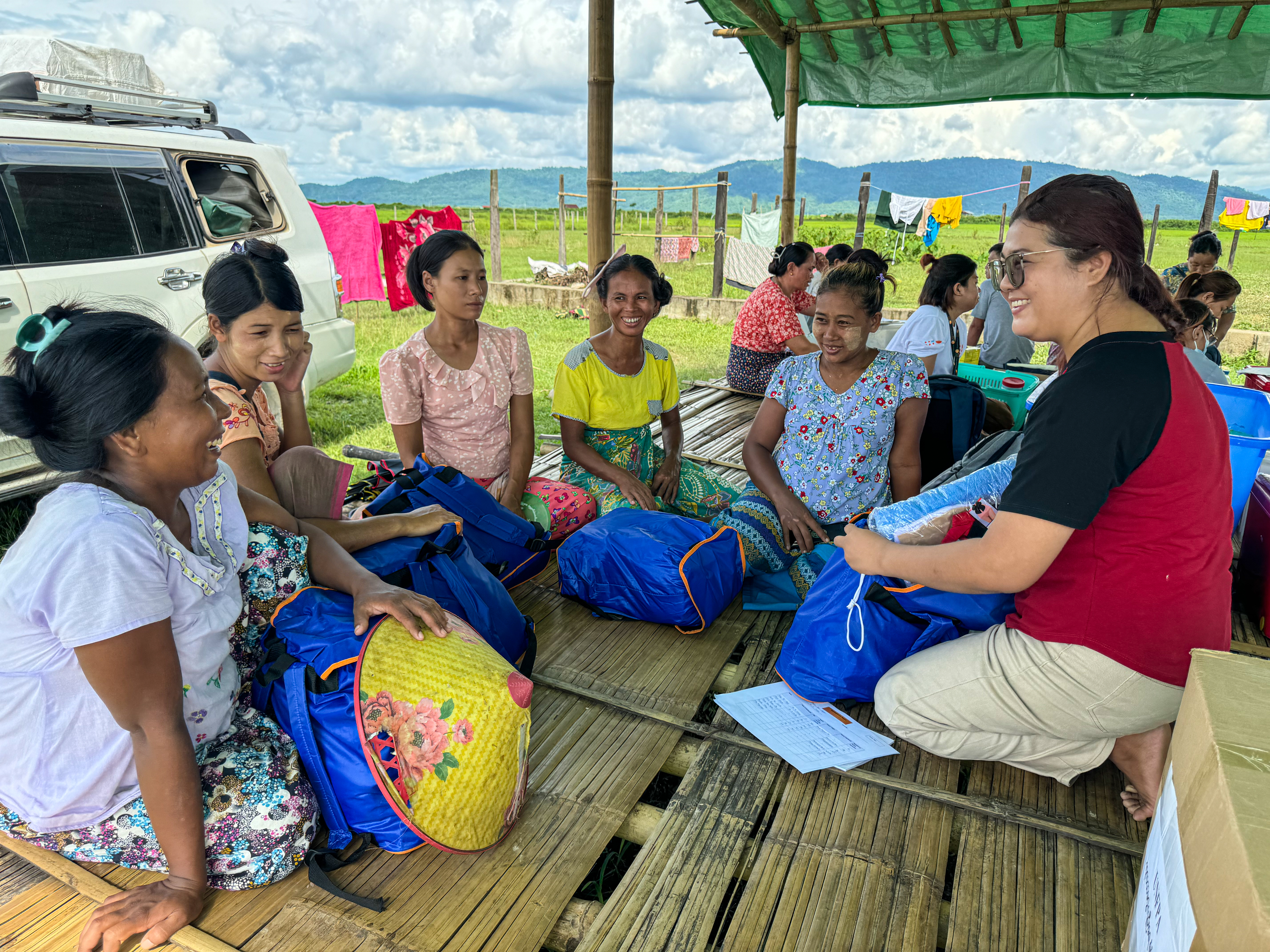
Since the flooding started, UNFPA and partner organizations, have delivered crucial assistance to women impacted by the flood in Myitkyina and Waing Maw townships. This aid encompasses antenatal care for over 70 pregnant women, referral assistance for over 30 individuals, and primary health care consultations for more than 1,000 individuals from affected communities. Additionally, over 500 Dignity Kits and over 200 Clean Delivery Kits for women and girls have been distributed.
This collaborative response of UNFPA and partners has delivered essential services and restored the dignity and hope of the people affected in Kachin. It served as a powerful example of how coordination at local, community level can make a real difference in times of disaster, providing crucial support to those who need it most.
